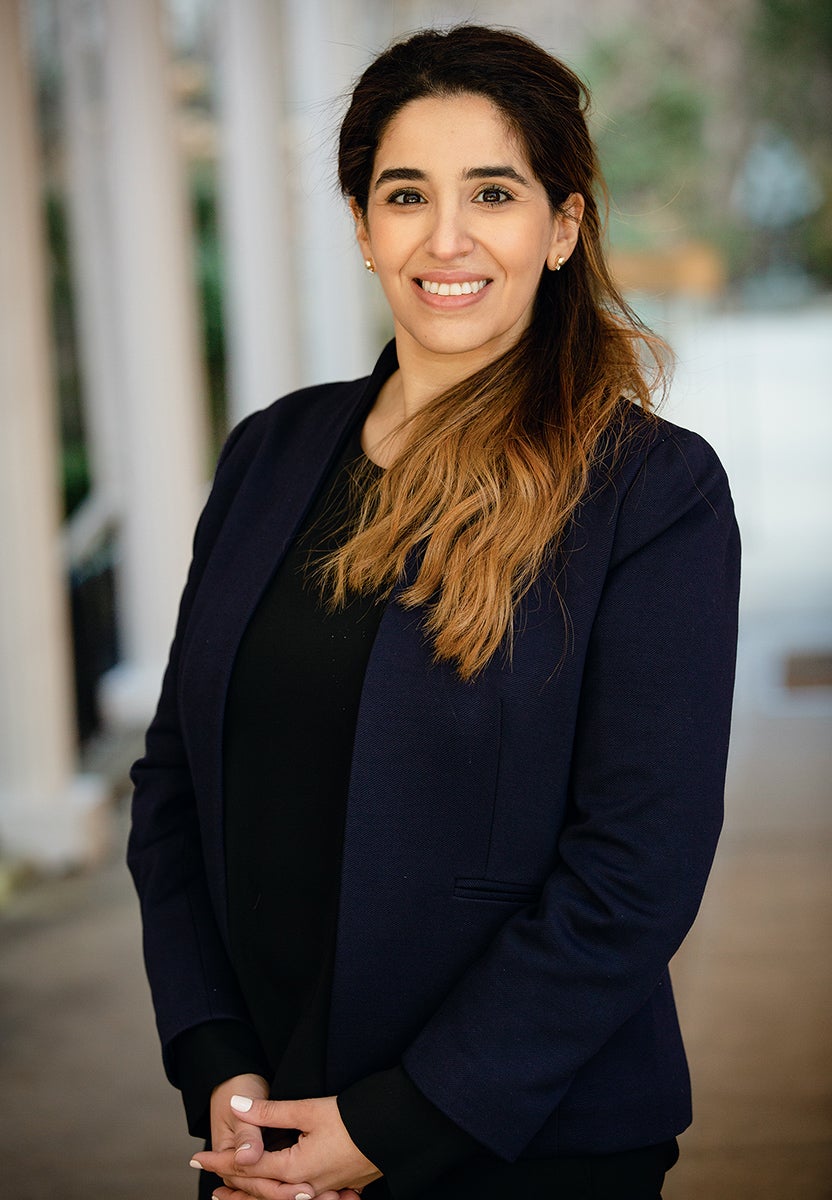connect
Rare Care
Case Western Reserve alumna Dalal Alhajji discusses her work at New York University College of Dentistry leading dental oncology patient care and how her CWRU experience changed her career.

Dalal AlhajjiPhoto: Steve Zak
Dalal Alhajji, DMD (DEN ’19), specializes in a field so rare that patients regularly tell her: “My dentist doesn’t know what to do. I need specific care. I’m so glad you’re here.”
Alhajji leads dental oncology patient care at New York University (NYU) College of Dentistry, and in 2020 she brought a cancer focus to the school’s Oral Health Center for People with Disabilities. “I essentially created my position at the [center] by advocating for cancer patients who need specialized treatment in the same ways that other patients with disabilities might,” she said.
Alhajji has steadily gained experience in her small specialty while trying to expand its ranks. After earning a dental medicine degree at Boston University, Alhajji came to Case Western Reserve’s School of Dental Medicine for an advanced education in general dentistry residency and later earned a Master of Science in Dentistry degree in oral medicine at the school. She’s also one of the few practicing dentists in the United States who completed a fellowship in dental oncology at Memorial Sloan Kettering Cancer Center, according to the American Dental Association. This year, the association named her one of its “10 Under 10” honorees for the impact she’s having less than a decade after graduating from dental school.
Think recently spoke with Alhajji about her work as a clinical instructor in the Department of Oral and Maxillofacial Pathology, Radiology and Medicine at NYU, and how her CWRU experience changed her career.
When you think of a disability, you think about conditions like autism, Down syndrome, or people who are wheelchair mobile. But the American Association of People with Disabilities considers a disability as anything that lasts more than six months—and cancer can certainly impact someone’s quality of life over a period of time. Cancer patients may have challenges, like [an] inability to open their mouth after surgery; tooth infections that can delay stem-cell transplants; and chemotherapy and radiation treatments that can cause oral health problems, like broken jaws or open sores. My goal is for [patients] to come out of those experiences stronger and feeling empowered.
As a dental student, I was hyper-focused on nailing down certain procedures. I think I forgot the bigger picture. When I came to Case [Western Reserve], I was introduced to the drastic divide between medicine and dentistry. I learned that dentistry often lives in a silo outside of general medicine, and that’s not always in the patient’s best interest. And that’s when I decided I wanted to be involved in bridging that gap ... [and] team up with medical doctors to make treatments and access better for patients with cancer and disabilities.
I introduced this kind of work into the curriculum at NYU, partly to raise awareness, but also to teach my students that they can do this, too. There’s not a lot of us out there. There are just a few dental oncology fellowship programs in the United States, and the one I did only had two spots. If I can get some of my students to embrace the care of patients with cancer and other disabilities, and they pass that knowledge along, we can create systemic change. My ultimate goal is for there to be more of us, so we can help more people.





